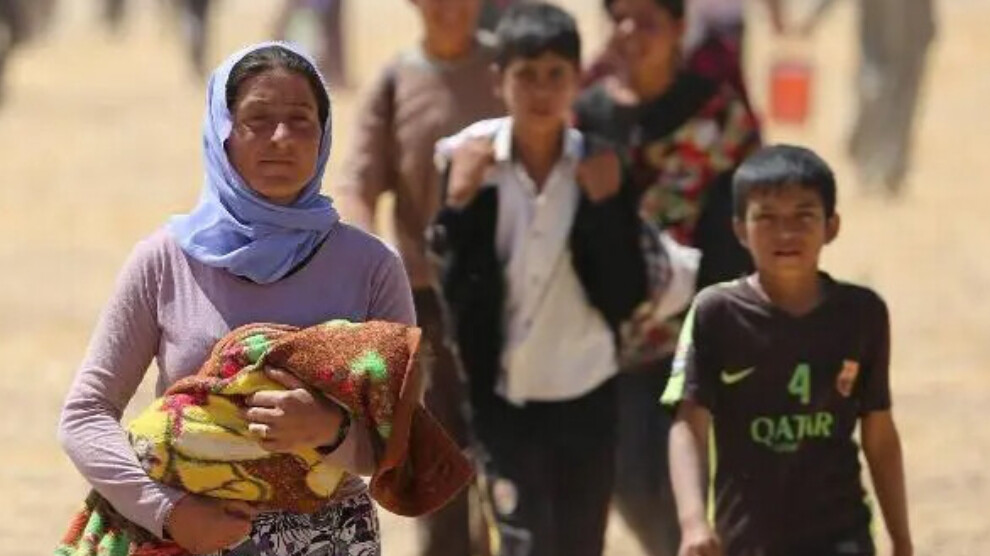About 1,300 Yazidi children still missing 10 years after genocide, says Save the Children
Save the Children said in a report that about 1,300 Yazidi children are still missing after Shengal genocide.
Save the Children said in a report that about 1,300 Yazidi children are still missing after Shengal genocide.

The fate of about 1,300 of Iraq’s missing Yazidi children remains unknown 10 years on from the Islamic State genocide with thousands of others still homeless, living in tents or amid rubble in Shengal (Sinjar), said Save the Children.
The Islamic State of Iraq and Syria (ISIS) killed, captured and displaced all 400,000 Yazidi people living in Sinjar on 3 August 2014, in a genocide that disproportionately affected children. About 10,000 Yazidis were killed or abducted. Half of all those executed were children, according to a report by multi-national researchers in the journal PLoS Medicine.
Nearly all (93%) of those who eventually died on Mount Shengal from injuries or lack of food and water were also children. Of the around 6,400 abducted Yazidis, it’s estimated about half were children, according to the Yazidi-led nonprofit Nadia’s Initiative. Boys as young as seven were sent to ISIS training camps and girls as young as nine were subjected to rape and sexual enslavement, says a Save the Children report.
Today, about 2,700 Yazidis remain missing, including around 1,300 who were children at the time of their abduction, according to estimates from Yazda, a Yazidi advocacy group in Iraq. About 300 to 400 of those still missing are likely to be still under 18. So far, over 3,500 Yazidis have been rescued, including 2,000 children, according to Nadia’s Initiative.
In Shengal, homes and buildings remain destroyed, and streets are littered with rubble and explosive remnants of war, making it one of the most contaminated regions in Iraq with unexploded ordnance, according to aid organisation Humanity & Inclusion. The conflict-damaged infrastructure severely limits access to water and electricity, and there is a shortage of schools and hospitals for returning residents.
As a result, many Yazidis suffer from mental health problems, with children reporting loneliness and suicidal thoughts, according to a report by Save the Children.